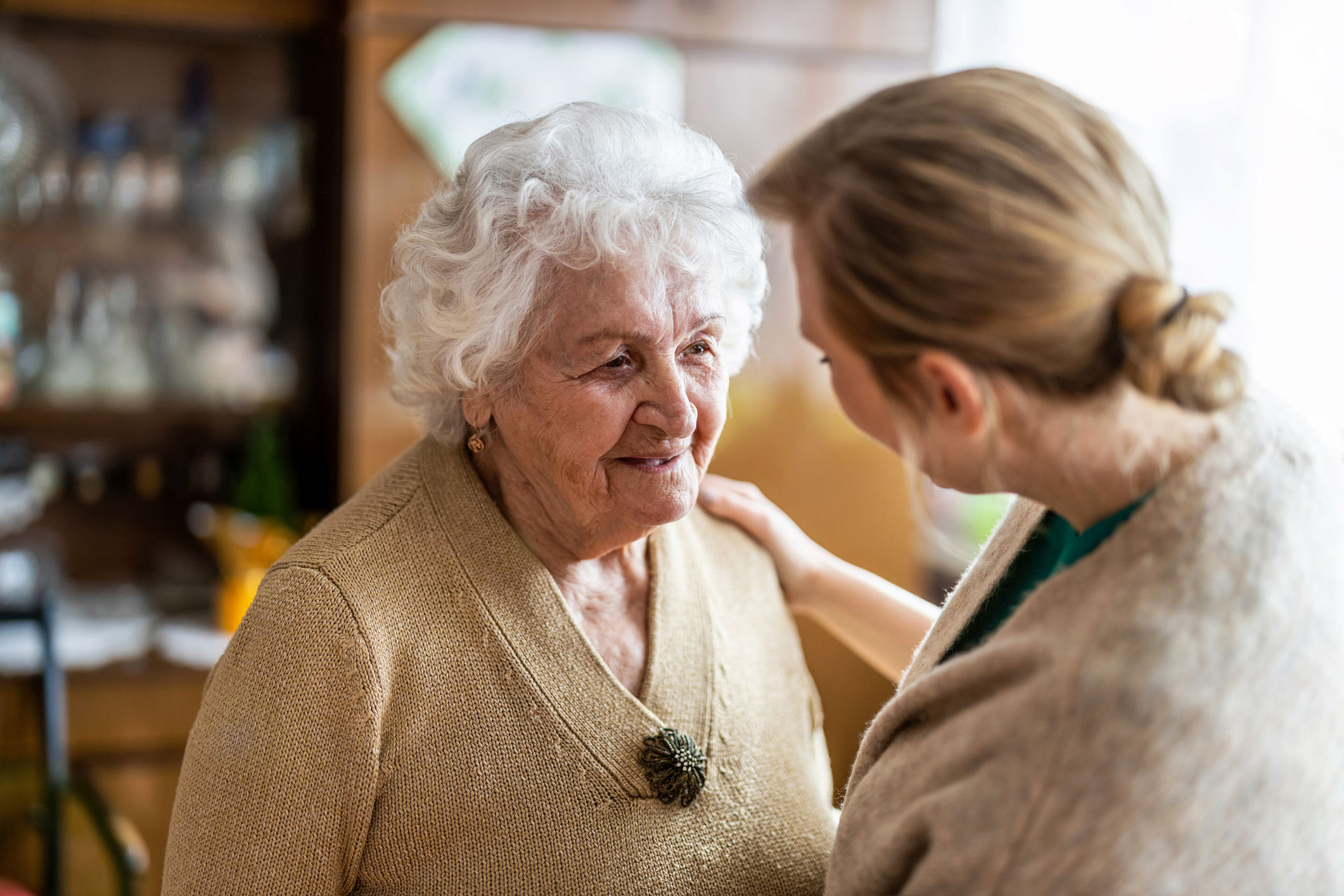Written by: Kimberly Knight
Caring for a loved one with Alzheimer’s or dementia requires thoughtful consideration of their surroundings to ensure their safety and well-being. For Dementia Patients, here are some essential tips to prevent accidents and ease their daily life:
Top 7 Safety Tips for Dementia Patients at Home
1. Secure Cleaning Supplies: Cleaning supplies often resemble beverages to someone with dementia due to their colorful packaging. To prevent accidental ingestion, store these items in locked cabinets out of reach. Be mindful not to leave them in plain sight.
2. Avoid Dark Rugs: Dark rugs may be perceived as holes by individuals with impaired vision. Remove unnecessary rugs and furniture to create a clear, unobstructed path, minimizing the risk of falls or fear-induced behaviors.
3. Mirror Removal: People with Dementia Patients might mistake their reflection for a stranger, leading to confusion and potential harm if they attempt to break the mirror. If mirrors cause distress, consider removing them from the home to prevent injuries from shattered glass.
4. Eliminate Inside Locks: Remove locks from inside doors, especially in bathrooms and bedrooms, to prevent your loved one from accidentally locking themselves in. This modification not only ensures their safety but also aids emergency situations.
5. Avoid Food-Shaped Decor: Decorative items resembling food might be mistaken for edible items, posing a choking hazard. Remove any decorations that could be confused with real food to prevent accidental ingestion.
6. Secure Doors and Windows: Alzheimer’s patients might wander and become lost. Install locks higher on doors, out of their line of sight, and keep doors and windows locked to ensure their safety. Provide a supervised, safe space for movement within the home, such as a designated area with rocking chairs or gliders. Creating a designated safety center within the home can provide a secure environment and peace of mind for caregivers.
7. Detergent Pod Safety: Bright, small objects like laundry pods can be mistaken for candy and pose a severe risk if ingested. Store them in a locked cabinet or consider using alternative forms of detergent to prevent accidental ingestion.
Remember: These changes in perception occur gradually, so it’s crucial to observe your Dementia Patients behaviors and adjust their environment accordingly. Our goal is to preserve their dignity and independence for as long as possible.
For further assistance and support, please reach out to the Caregiver Support Program at The Senior Source at CSP@theseniorsource.org. Our family caregiver support is here to help you.
Together, we can create a safe and nurturing environment for your loved one.
Kimberly Knight is the Director, Caregiver Support Program at The Senior Source. She holds a Master of Science in Social Work from University of Texas at Arlington and B.S. in General Education from Alcorn State University. Kimberly is a Certified Dementia Practitioner (CDP) and Certified Alzheimer’s Disease Dementia Care Trainer (CADDCT). Kimberly serves as a council member for the Dallas Area Agency on Aging and the North Central Texas Council of Governments.

